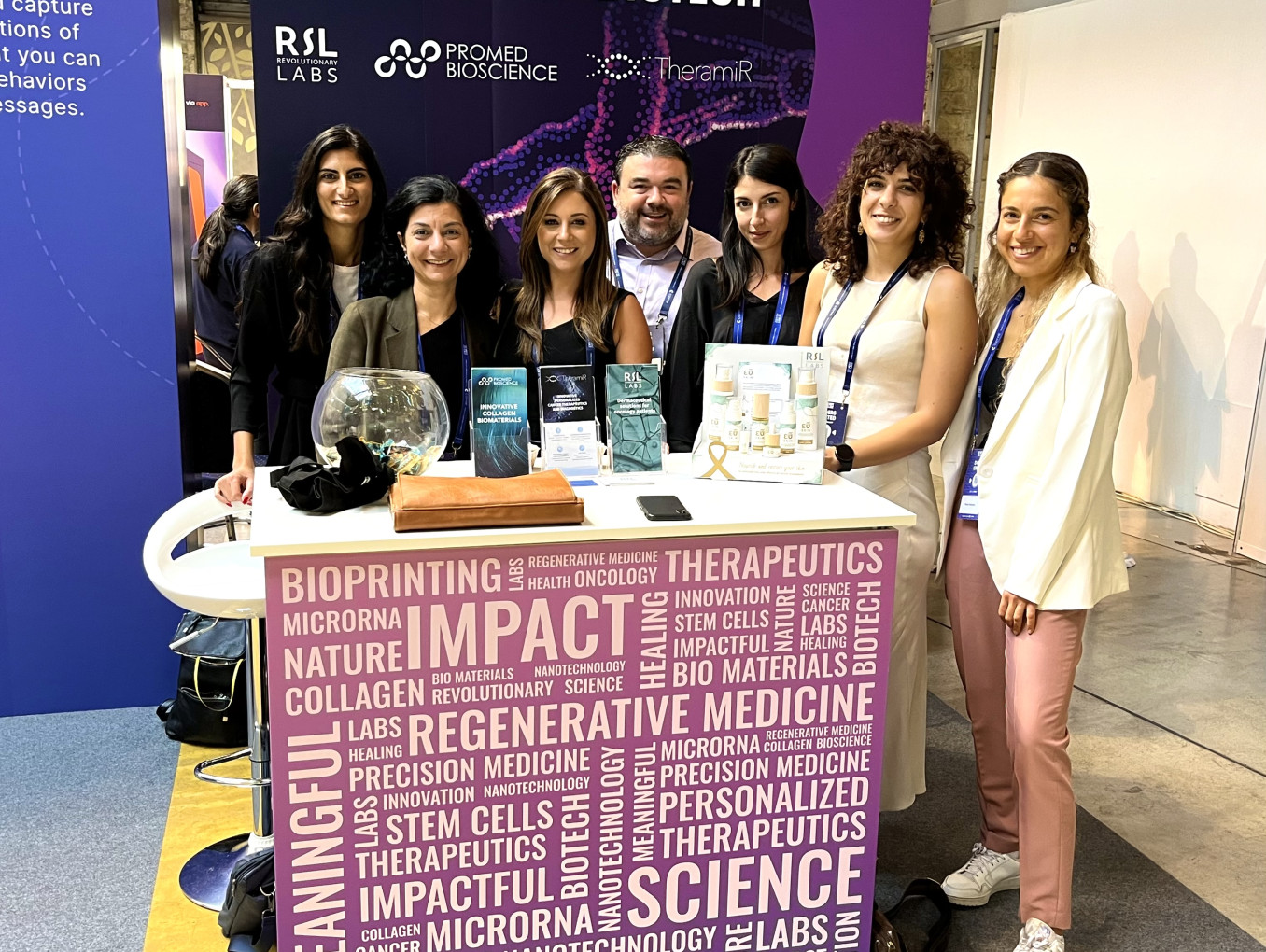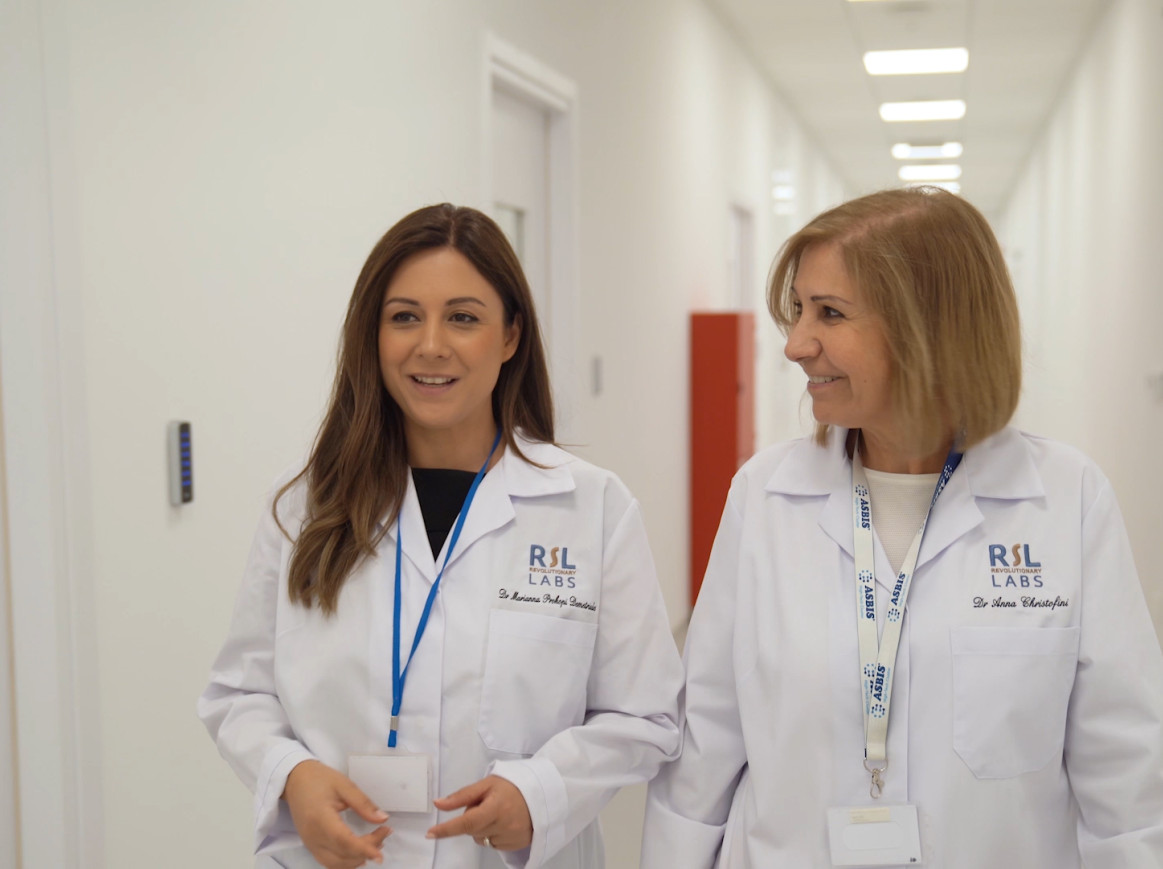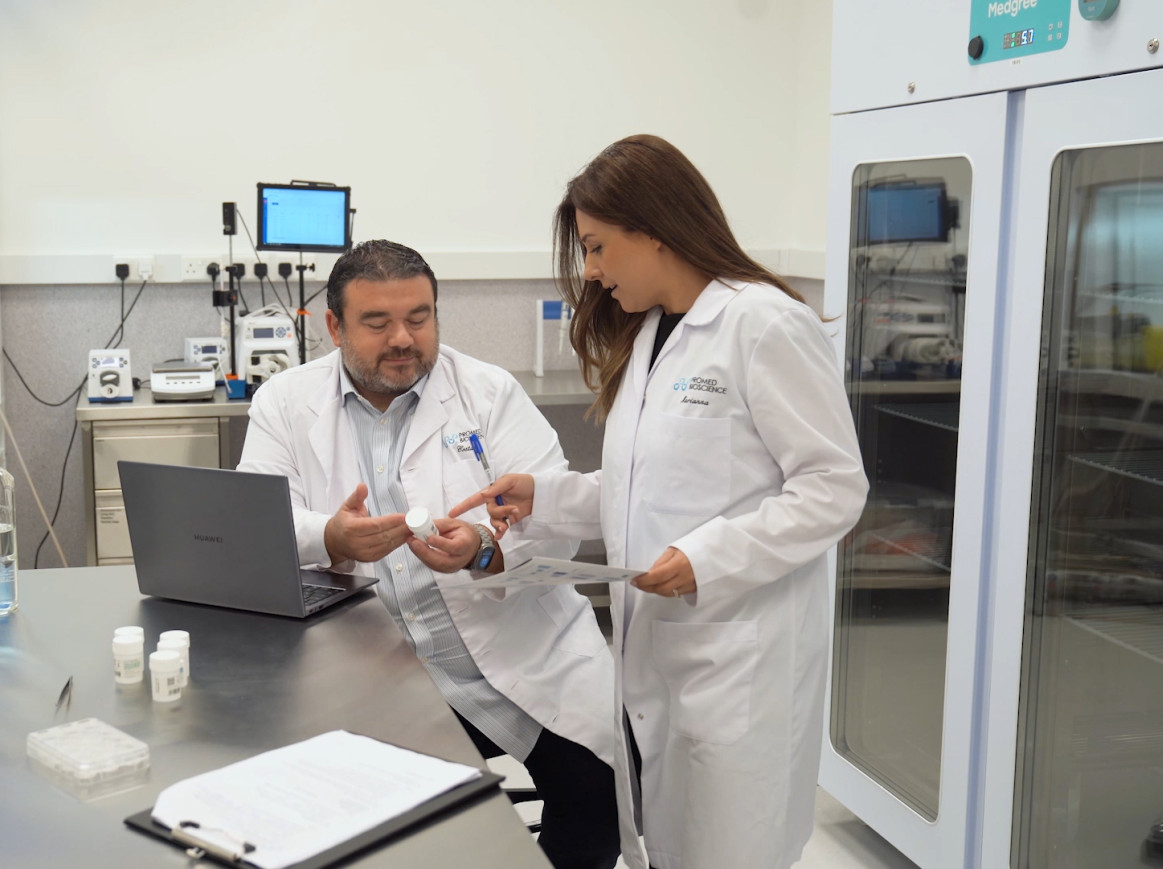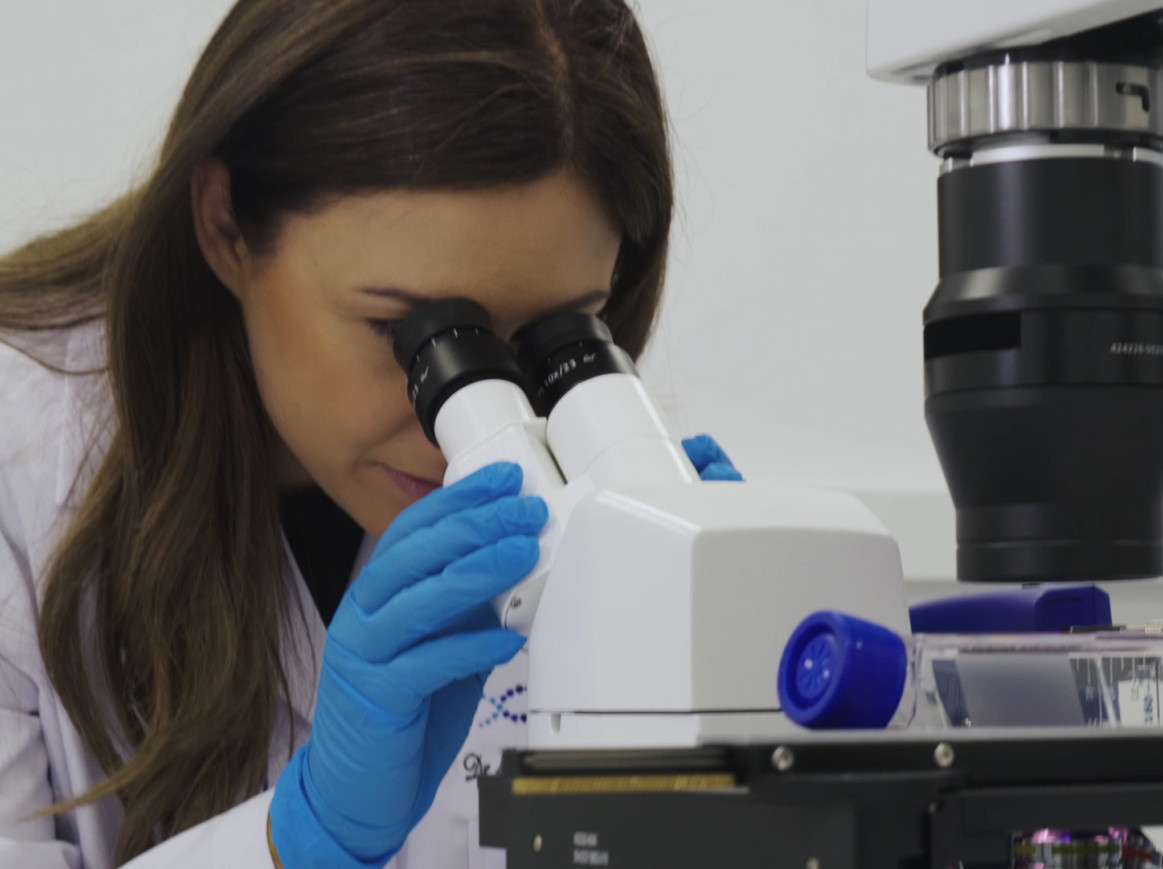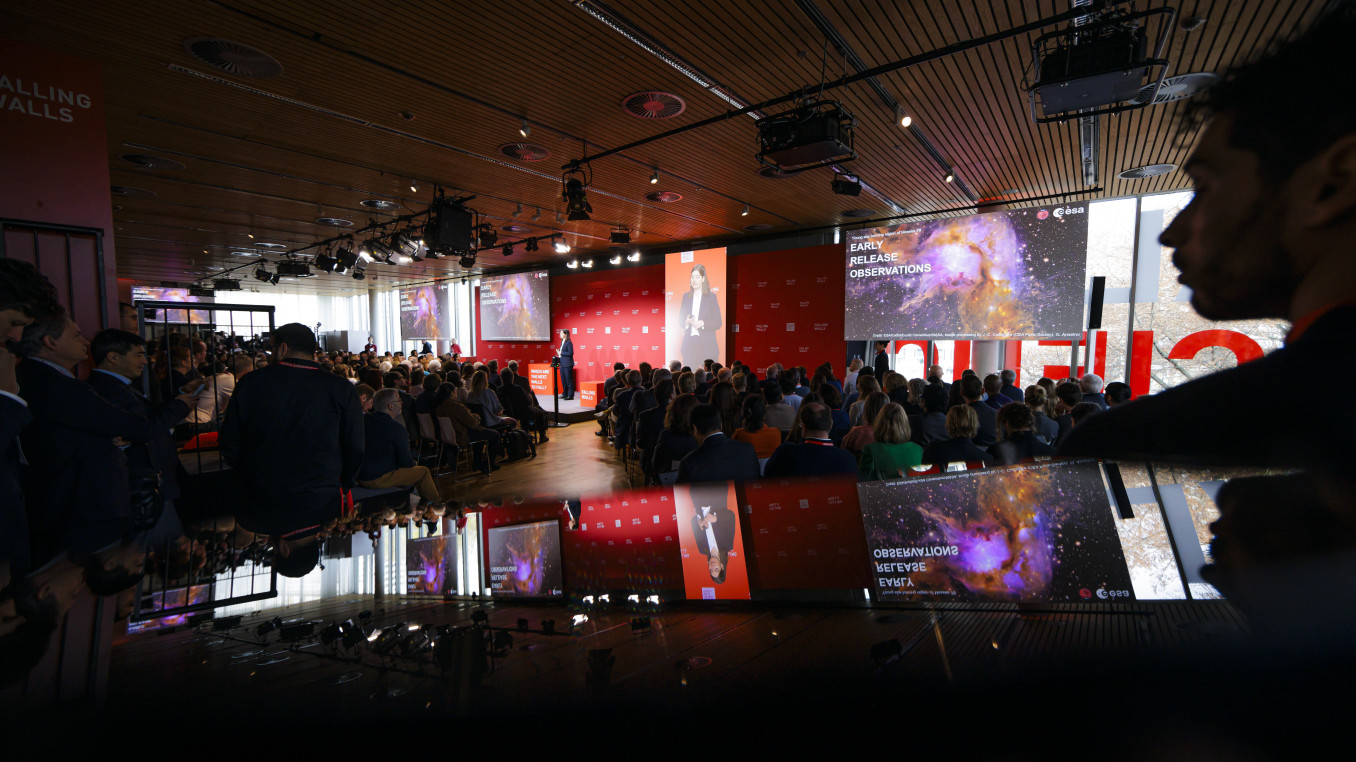Marianna Prokopi-Demetriades: Pioneering Personalized, Holistic Cancer Therapies
Breaking the Wall of Holistic Oncological Care
Winner Interview 2024: Women's Impact Award
Marianna Prokopi-Demetriades is breaking new ground in cancer treatment by combining cutting-edge biotechnological innovations with a holistic approach to patient care. Through her work at Theramir Ltd, Promed Bioscience, and RSL Revolutionary Labs, she is developing miRNA-based nanomedicines that target cancer cells with precision, reducing side effects and improving patients’ quality of life. Additionally, her research advances regenerative medicine with collagen-based biomaterials for organ bioprinting and tackles oncological skin toxicities through innovative dermaceuticals. Prokopi-Demetriades' approach redefines cancer treatment by addressing both the disease and the patient's overall well-being, setting a new standard for comprehensive oncological care.
Which wall does your research or project break?
My research focuses on breaking the wall of holistic oncological care, overcoming the limitations of conventional cancer treatment by integrating patient-centered biotechnological approaches. Traditional therapies often target cancer cells but overlook patients’ overall well-being. We aim to change that. Losing close family members to cancer has motivated me to rethink how we approach oncology. Through Theramir Ltd, Promed Bioscience, and RSL Revolutionary Labs, we’ve developed a biotechnological framework that integrates miRNA-based nanomedicines for personalized, targeted cancer therapies. These therapies are highly selective, reducing side effects and improving patients’ quality of life. Additionally, Promed’s advanced biomaterials, such as collagen bioink for bioprinting of lymph node replacements for post-breast cancer surgeries, support patients in regaining normalcy after treatment. Our dermatological products prevent skin toxicities often associated with oncology treatments, enhancing overall skin health and patient comfort.
A critical barrier in oncology has been the disconnection between disease treatment and the patient’s holistic well-being. Traditional methods focus on killing cancer cells but often neglect the broader emotional, physical, and psychological impacts on patients. My work addresses this by merging personalized medicine with a more comprehensive care model that treats not just the disease, but the individual. This approach improves the efficacy of treatments while ensuring that the human aspect of healthcare is not forgotten. Moreover, we are tackling the lack of non-invasive, innovative treatments that provide fewer side effects and better outcomes. Global collaboration is essential to advance cancer research, and we actively work with international partners to share innovations and break the silos that restrict progress.
In summary, my research redefines cancer treatment by embracing a holistic approach, combining cutting-edge technology with compassionate care. This evolution in oncological care aims to improve not only patient outcomes but also their quality of life, setting a new standard for how we approach complex health challenges in the 21st century.
What are the three main goals of your research or project?
The three main goals of my research are focused on transforming cancer care by developing innovative and highly personalized therapeutic solutions:
- Revolutionizing Cancer Treatment with miRNA-based Therapeutics: The first goal is centered on developing miRNA-based therapeutics that target specific cancer cell markers like LCP-1 positive cancers. Using advanced molecular profiling, these therapies provide precision treatment, aiming to increase the efficacy of cancer treatment while significantly reducing side effects. Our patent in this domain enables personalized medicine, offering patients safer, more effective cancer therapies tailored to their genetic profiles. By working with miRNA, we aim to disrupt conventional cancer treatment, bringing more selective, targeted, and less invasive approaches.
- Advancing Regenerative Medicine with Collagen Biomaterials for Organ Bioprinting: My second focus is on biomaterials, specifically collagen-based structures, which are used in wound management and organ bioprinting. This technology supports the development of artificial lymphatic nodes and skin regeneration, especially vital for cancer patients undergoing surgeries like mastectomies. By integrating regenerative medicine into oncological care, these materials not only repair tissues but also enhance post-surgical recovery, improving patient outcomes and quality of life. Our vision includes bioprinting complex organs and tissues that offer patients more comprehensive care options during their cancer treatment.
- Innovation in Dermaceuticals for Oncological Skin Toxicities: The third goal is to address the often-overlooked area of oncological skin toxicities. My research has focused on creating dermaceuticals that mitigate the severe skin reactions from chemotherapy and radiation therapy. We are now in the process of upgrading these formulations into medical devices designed for wound management. These products treat cracked skin, nail issues, scalp erythema, and other side effects that diminish the quality of life for cancer patients. With partnerships through campaigns such as Europa Donna and other patient associations, we also provide discounted and accessible solutions to patients in need.
Through these integrated efforts, I aim to improve cancer patient outcomes by bringing innovation to personalized medicine, tissue regeneration, and holistic care, making a significant impact both within Cyprus and on a global scale.
What advice would you give to young scientists or students interested in pursuing a career in research, or to your younger self starting in science?
To any young scientist or student eager to embark on a career in research, my advice would be to stay curious, be resilient, and embrace the power of collaboration.
- Stay Curious: Curiosity is at the heart of every discovery. Never lose that spark, that need to ask “why” or “what if.” It’s the questions that seem small or unconventional that often lead to breakthroughs. Don’t be afraid to venture into unknown territory; some of the most valuable insights come from simply exploring. Whether your experiments work or fail, you’re learning and growing—every step is valuable.
- Build Resilience: The path of research is filled with twists and turns, and not every result will be what you hoped for. But that’s okay! It’s part of the journey. Failures aren’t roadblocks—they’re learning moments. They’ll shape you, refine your ideas, and push you closer to success. Keep going, even when it feels tough, because resilience will help you navigate challenges and push your field forward in ways you can’t even imagine yet.
- Embrace Collaboration: Science isn’t meant to be done alone. Some of the best discoveries happen when different minds come together. Surround yourself with mentors, peers, and collaborators who challenge and inspire you. Be open to sharing your ideas and learning from others. Working with people from diverse backgrounds will enrich your research and your life—it will push you to see the world through different lenses and make you a better scientist.
To my younger self, I would say: trust your journey. Don’t worry about what everyone else is doing or feel like you have to follow a set path. It’s okay to carve out your own. Follow your passions, embrace the challenges, and find people who inspire you. Science if fun and Research is a lifelong adventure, and what matters most is staying true to your passion and moving forward with purpose.
What inspired you to be in the profession you are today?
I’ve always been fascinated by biology, but for many years, I struggled to find my true purpose. Losing both my father and sister to cancer was a turning point. It made me realize I wanted to dedicate my life to creating solutions that would make a real difference for cancer patients, which led me to found Theramir, Promed Bioscience, and RSL Revolutionary Labs.
What impact does your research or project have on society?
My research is transforming cancer care by creating personalized treatments that are less invasive and more effective, aiming to give patients access to truly tailored care. This is especially important as improving quality of life is often overlooked in cancer treatment. Beyond the patient, we also consider the families who suffer alongside them, making it essential to provide solutions that address both physical and emotional well-being. By fostering international collaboration in oncology, we are accelerating progress and bringing hope to those affected by cancer.
What is one surprising fact about your research or project that people might not know?
One surprising fact about my research is that our miRNA-based therapeutic platform holds the potential to treat nearly 30 different types of cancer. This breakthrough in nanotechnology could also open the door to a novel pathway for cancer cell reversion, offering a new frontier in the fight against cancer.
What’s the most exciting moment you've experienced over the course of your research or project?
The most exciting moment in my research was seeing our products successfully applied in a clinical setting, significantly improving the patient's quality of life. This reaffirmed my commitment to making science accessible and ensuring that innovation directly meets patient needs. It's not just about breakthroughs; it's about translating them into real-world impact.
